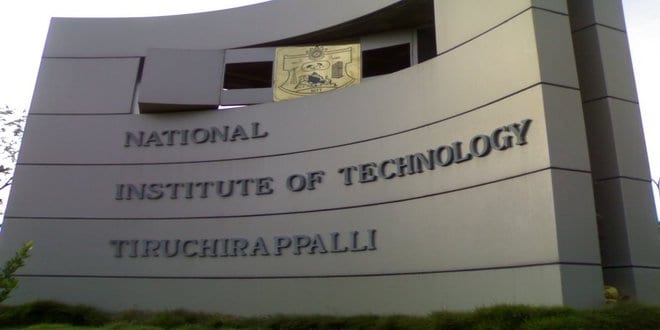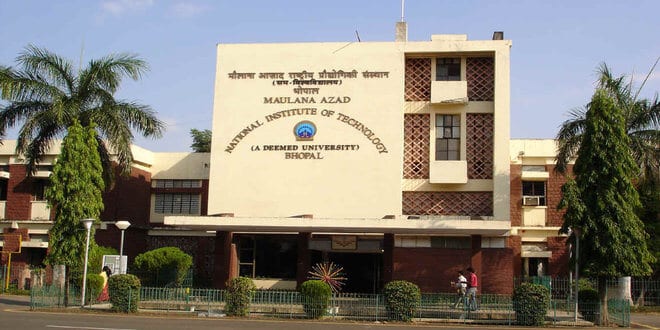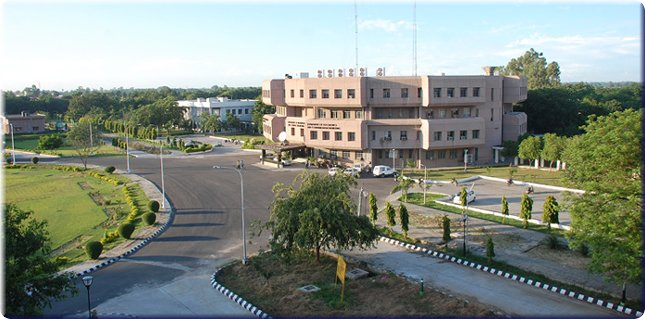Gandhinagar:A mega workshop series on Climate Change, Climate Action Now (CAN) 2020, was inaugurated today at the Indian Institute of Technology Gandhinagar (IITGN) byShri S J Haider, IAS, Principal Secretary, Climate Change Department (CCD), Government of Gujarat, in presence of other distinguished guests, including Prof Sudhir Jain, Director, IITGN; Shri R D Kamboj, Director, GEER Foundation; Prof Amit Garg, Professor, Public Systems Group, IIM Ahmedabad; and Prof C N Pandey, IITGN.
Delivering the inaugural speech as the Chief Guest of the event, Shri S J Haidercalled for a collective action to mitigate climate change. He said, “The prospects of climate change are staring at us in our face and hence it is high time we understand the seriousness of this phenomenon. The concerns arising out of climate change cannot be addressed only by the government or the academia, but each and every member of the society, be it businessmen, industrialists, bureaucrats, or the homemakers, all of us have a role to play in our individual or collective capacity. Simple things like energy savings, water savings, liquid and solid waste management, rain water harvestingetc. can help in reversing the effects of climate change.”
Further, he provided an overview of the initiatives taken by the state government, including the project in which the Climate Change Department has engaged with IITGN through the national mission on climate change to work on climate risk assessment of several key and priority sectors of Gujarat. He informed that the Gujarat state action plan on climate change that incorporates nine thematic areas, is being revisited with additional targets and objectives which have been enshrined under the nationally determined contribution of India and the United Nations Sustainable Development Goals 2030.
“We are ensuring that the carbon footprints should not increase while augmenting infrastructure and taking up activities on various fronts. Nothing should be at the expense of nature. Given the higher vulnerability of rural areas to the ill-effects of climate change, we are going to incorporate the ingredient of climate resiliencyunder the Government of India’s Gram Panchayat District Plan (GPDP) for rural areas.We are sure that the deliberation that are going to take place in these workshops would lead us to some concrete findings and would help us pave a roadmap for future to combat climate change”, he concluded.
Elaborating on variousinitiatives for nature conservation that are interwoven into IITGN’sculture and ethos, ProfSudhir K Jain said, “One of the objectives when we designed this campus was to build a laboratory of a sort where we try new things, learn from our mistakes and develop on that. IITGN hadsuccessfully transplanted more than 70 trees on campus. The campus buildings have been designed in such a way that they provide shield against summer heat, give passive cooling, and contribute in energy savings. IITGN has also proactively taken up steps for rain water harvesting, solid waste and liquid waste management.”
Emphasising the need to contribute towards climate change mitigation, he said, “Climate change action is an extremely important agenda for the entire mankind.We believe that we have to do everything within our reasonable means even if somebody else is not doing it.”
Speaking on the occasion, Shri R D Kamboj said, “We all know that climate change is the reality and the brunt of it is seen every year. This is impacting our eco-system and bio-diversity, agricultural production, water security, natural resources, coastal infrastructure, as well as human health. The state government is working proactively to contribute towards climate-friendly development. GEER Foundation has taken up several studies in this direction and is also working on training and development with IITGN. We hope that these workshops will prove to be very useful for the target groups, collaborations and networking to take forward the climate action.”
Sharing his thoughts on the subject, Prof Amit Garg said, “While we are talking about action on climate change, we must ponder over two things – 1) Action for what; under which the first priority should be adaptation of all eco-systems at all levels, for water, forests, infrastructure, people, and vulnerable community. And the best way for adaptation is sustainable development. 2) Action by whom;we have to understand that nobody will come to save us and so we have to do it ourselves by aligning our policies, actions, and day-to-day developmental goals to synchronise with it.”
The inaugural event was followed by the first workshop of the series that was divided into four different sessions – 1) ‘Policy Picture on Climate Change – Global and National’; 2) ‘Environment Governance’; 3) ‘Water’; and 4) ‘Agriculture’. About 60 participants from various government departments attended the workshop.
This workshop series is jointly organised by IIT Gandhinagar and Gujarat Ecological Education and Research (GEER) Foundation Gandhinagar, that will be conducted for a period of more than three months (February, March and April 2020), 15 workshop days, and on three theme-based segments namely, 1) Climate Change Policy and Governance (during February 2020), 2) Climate Action and Role of Industry (during March 2020), and 3) Climate Change Research And Technology Development (during April 2020).
Supported by IITGN’s Dr Kiran C Patel Centre for Sustainable Development, this workshop series will cover a wide range of subjects – climate science and policy, energy, water and environment, agriculture and food security, forest and biodiversity, infrastructure, health and vulnerable communities, industry, climate technologies and financing, socio-cultural issues, traditional knowledge and low consumption lifestyle, recycling and circular economy, and other allied subjects. The entire series will have more than 150 presentations.
This mega workshop series will bring together representatives from three participating groups – policymakers, industry and academia. It will promote interaction among experts working on climate policy and governance, climate actions, climate mitigation and adaptation, climate science, climate research focusing on Gujarat state as well as national priorities. It also aims to shape a list of climate change and environment-related research and technology development needs through deliberations with various government departments and industries to help develop collaborative research and technology development projects in the future.









